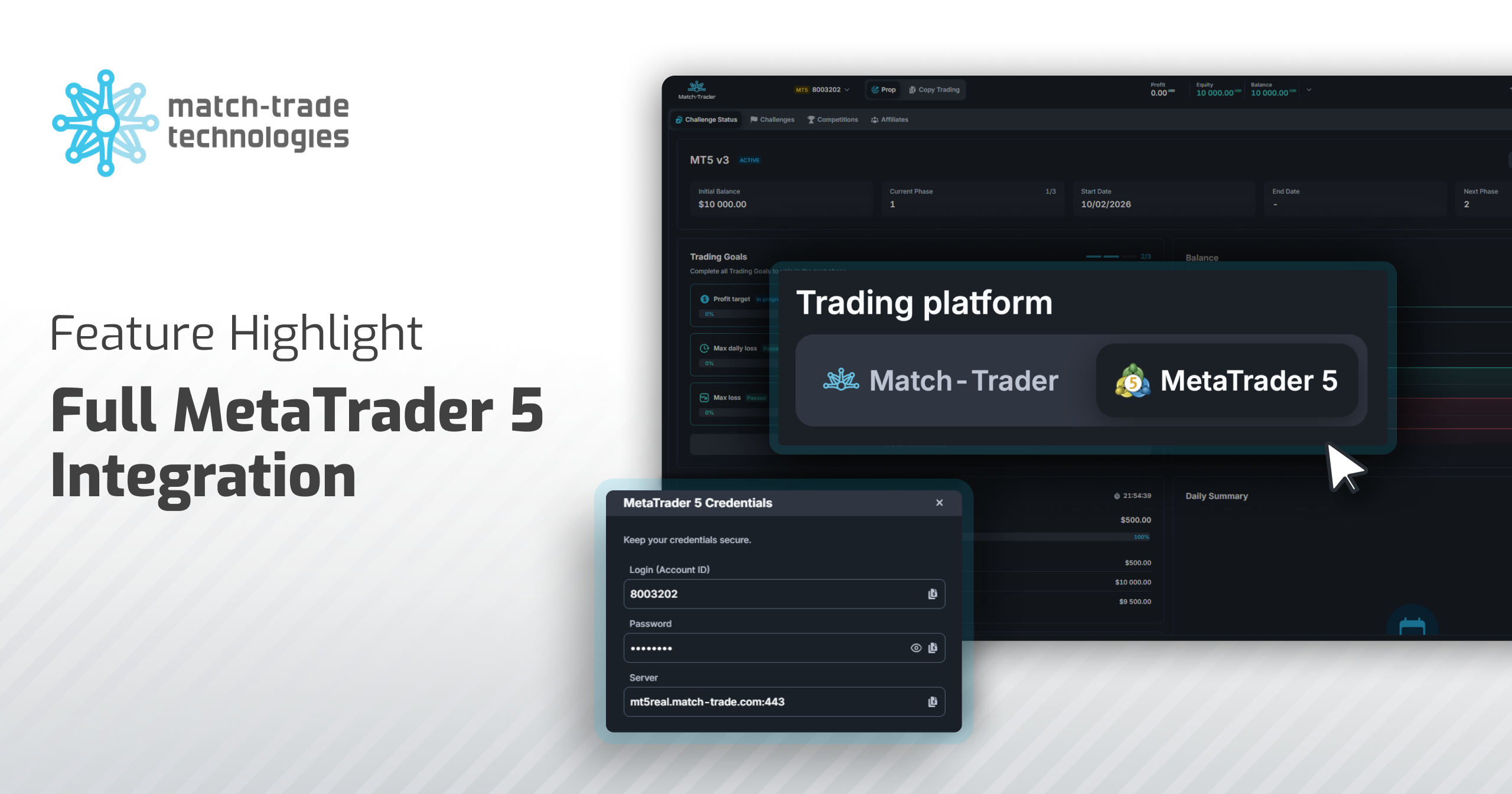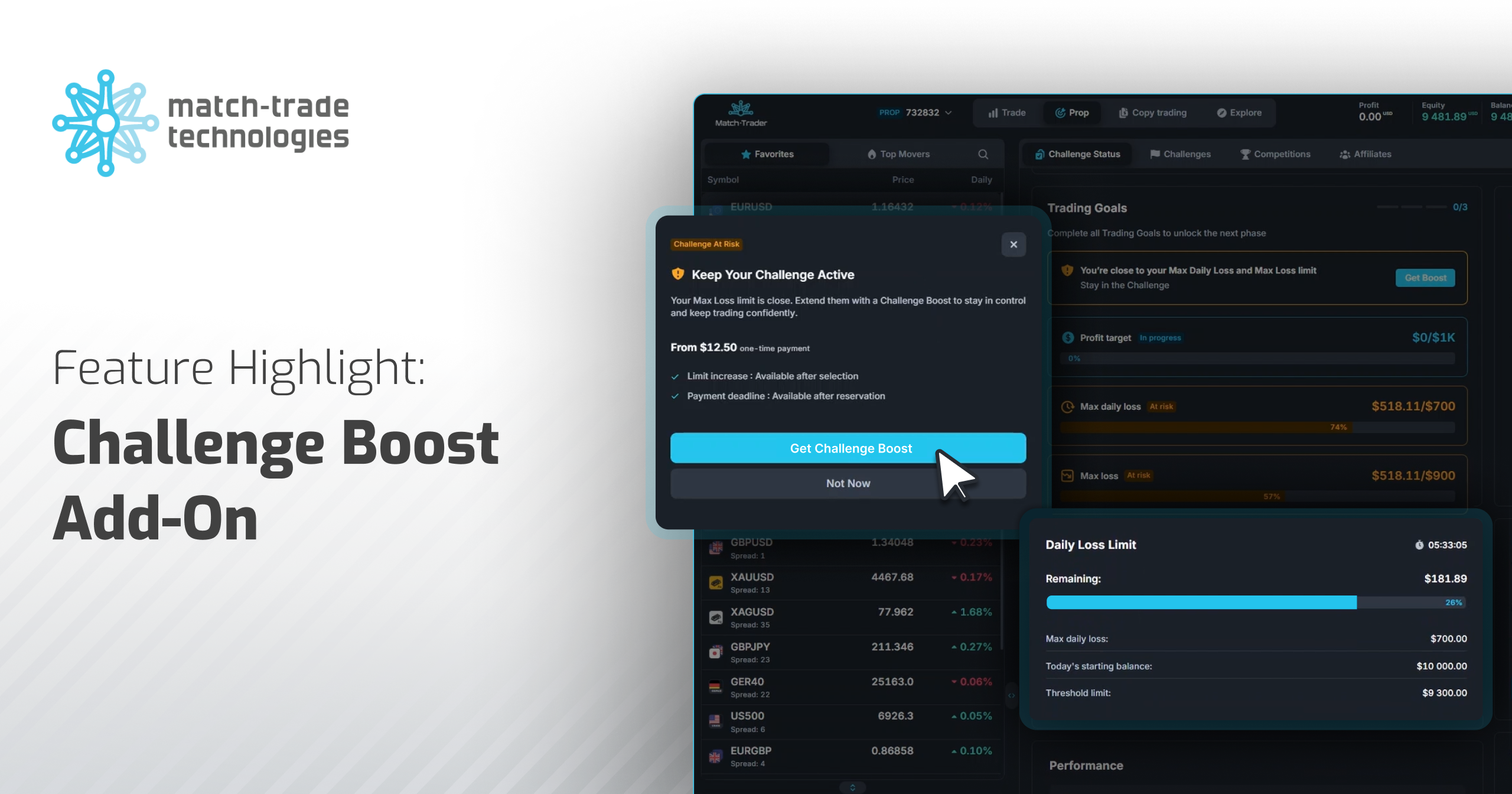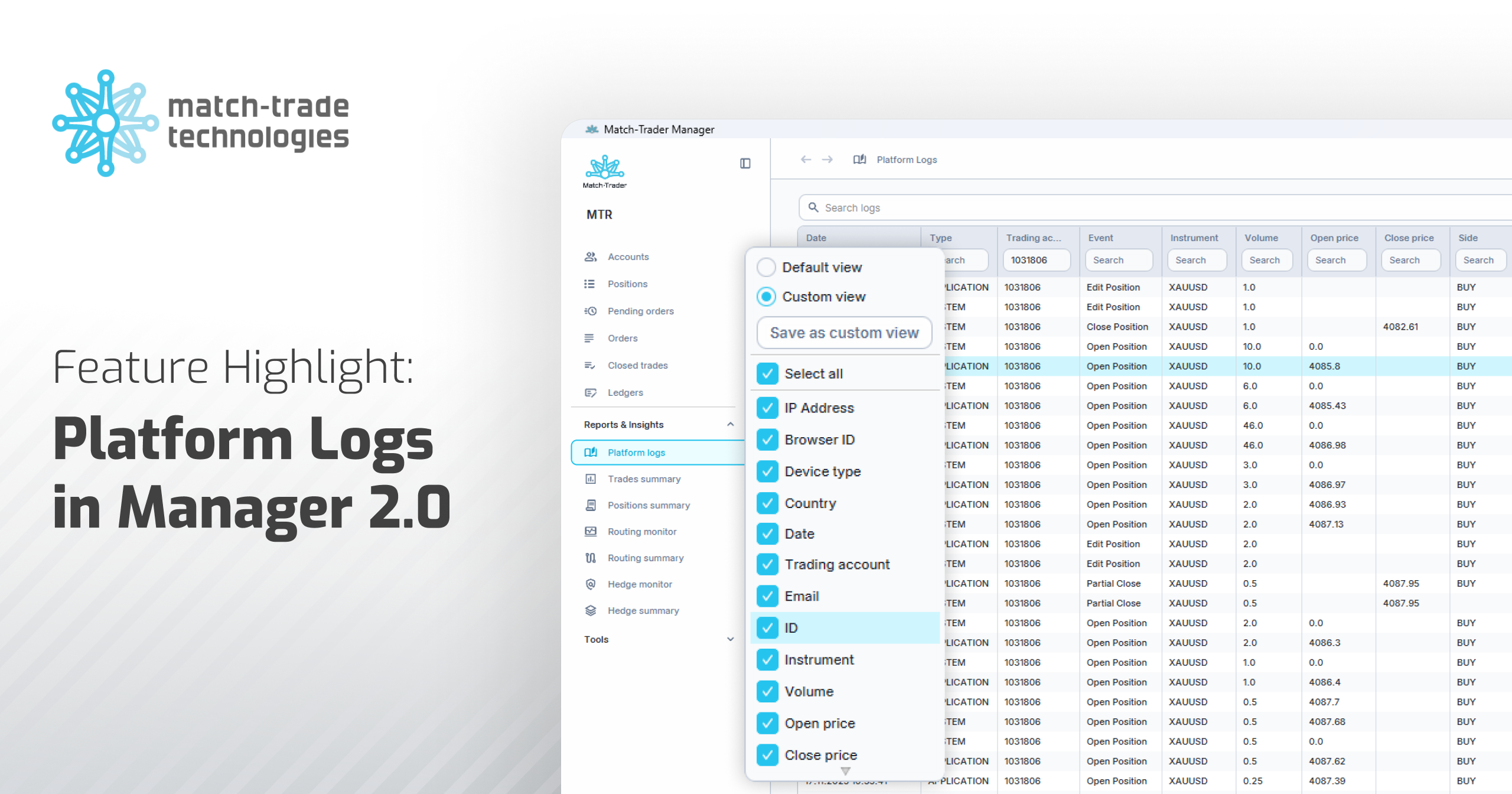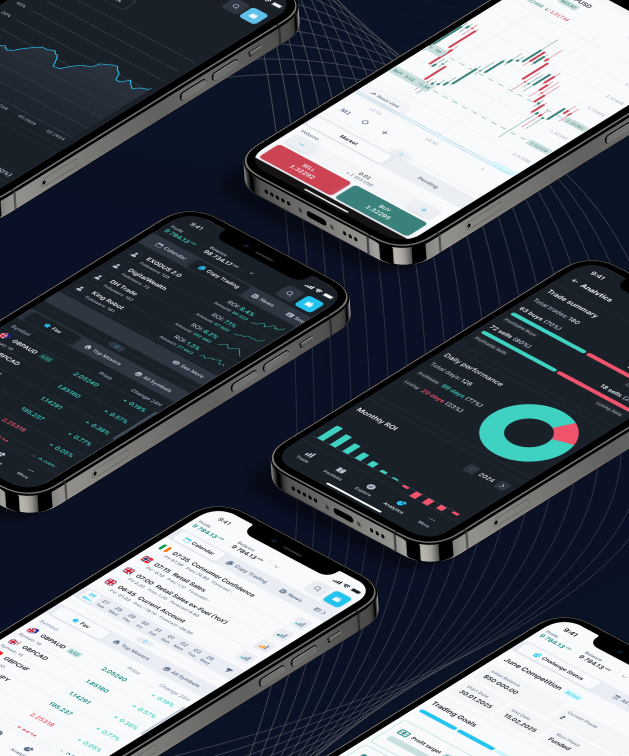This year was filled with exciting industry events, which Match-Trade Technologies put a solid mark on. Our experts shared their knowledge on trading platforms and directions of their development with honour. One of those occassions was The Secret Ingredient of Brokerage Business: White Label solutions featured by Michael Nichols, our Head of Sales, during iFX EXPO Cyprus.
Alexis Droussiotis, Head of Match-Trader platform, has moderated a debate titled “Trading Platform Solutions: Learning from the Past, Charting the Future” during Finance Magnates London Summit 2023. The discussion focused on directions of development for trading platforms in the light of historical trends and current market challenges. Our representative was joined by Jay Mawji, Managing Director at Infinox, Ran Strauss, CEO at Leverate and Alexey Kutsenko, CEO & Founder of Tools for Brokers. What came out of the lively expert discussion?
Current challenges
The aspect of market challenges touched mainly the Brokerage perspective. Jay Mawji declared that matters of technology and platform have proven to be the most demanding. Difficulty of potential switching between technology stacks, if necessary, make the selection of the proper platform significant. Challenges lie within self-reliant developing and improving of proprietary trading platforms as well, making the technological area Achilles heel for Brokers.
Trends from the last 15 years have been mentioned as well. It is clear, that the trading technology is moving towards more mobile-friendly and easily accessible via various devices. It works this way both on the traders side, in terms of demand, as well as with tech providers. There is also an additional success factor. In order to maximise the chance for succeeding, traders seek for multi-asset platforms, which allow them to diversify their wallets and minimise risks.
The industry also becomes more demanding, as the amount of tools available on the market systematically increases. This factor makes it difficult for all the parties involved. Technology providers gain more competition and selection of the right platform gets more complicated for Brokers. Also, multiple solutions mean that traders often must make adjustments to various systems in case of switching between Brokers.
Development driven by user feedback?
A rather thought-provoking question occurred during the debate. If and to what extent the development of trading platforms is driven by user feedback? How much do technology providers are and should be inspired by what traders expect? And, on the other hand, isn’t it the technology innovators, who should be leading the evolution? The panellists all agreed to some extent that following the trends blindly draws the attention from where it belongs, which is offering a solid, consistent value proposition to traders. This equals to providing them with stable solutions along with sustainable development. The tools need to remain up-to-date and in pace with demands of the market.
Rather than driving the development by clients expectations, it seems clear the evolution of trading platforms should be steered by technology leaders at tech providers. As a result, it is expected to be based on opportunities ensured by the technology stack and long-term sight on development goals appointed by expert knowledge of the sector. This way makes it possible to guarantee stability and possibility of addressing future needs of Brokers and traders.
Nevertheless, it is significant to keep an eye on trends, incorporating the crucial ones into the existing platforms or ecosystems of solutions. However trends are a passing thing and it is not worth becoming heavily influenced by them, at the same time they tend to shape clients’ expectations. Technology providers need to stay on top of them. This can be achieved by tracking heatmaps, customer feedbacks, improvements among competition and drawing conclusions. The strive to remain up-to-date with the industry standards requires constant product comparison and competitive analysis of the market. As expectations of customers are growing and they are increasingly harder to satisfy, this process needs to be led and analysed in a consistent, on-going manner.
How innovative is too innovative?
It was also interesting to ponder on the extent of innovation that does not repel users. As habit becomes second nature and for many years most Brokers and traders worked with top 3 platforms, many clients are simply used to specific forms or the solutions themselves. Even more importantly than being accustomed to certain interfaces and user paths, Brokers and traders have already configured ecosystems of tools around their platform of choice.
At the same time, especially for smaller Brokerages, it is extremely too expensive to develop their own solutions. When created, those platforms require further advertising and convincing users to become accustomed to an entirely new tool, making the concept a serious investment that only the biggest and the wealthiest can afford. But even then, success is not guaranteed. As Jay Mawji shared, Infinox have faced this challenge and failed. Three years ago they launched an author solution, IXO. Development and advertising of the platform absorbed a lot of time, effort and resources, all seen as a long-term investment. After a while it turned out to be very difficult to change traders’ habits and convince them to use a new tool. As was mentioned, nobody was using the platform and the project had to be cancelled.
Diverse expectations
A conclusion was drawn that expectations and needs of different groups of traders are diversified and practically unable to be met with a single, standardised solution. Specialisations are becoming more common, catering to specific requirements of different groups of traders. For example, it is observed that younger groups, especially new-comers and generation Z, prefer more simplified and gamified platforms. Those features facilitate appealing to them with advertising and maintain their long-term engagement. At the same time, this group requires more tools for analysis, as their understanding of the market is not yet that extensive and profound.
On the other hand, more experienced and usually high-end business clients tend to prefer mobile solutions. Those allow them to utilise their deep market knowledge and self-reliantly created strategies in a fast, intuitive way. What needs to be stated is that specialisations are mainly visible at front-ends, while the trading back-end usually remains the same.
Clients’ demands
Clients often expect to open their Brokerage business instantly. At the same time, they demand multiple customization options in order to distinguish themselves on the market. It is rather an “either, or” situation, as any additional upscaling, customizations or integrations, naturally must take some time. It is a decision that needs to be made, between instant start and complex improvements. Especially that integrations and modifications need to be done right, not fast. Agility of the solution is the best factor to be emphasised, as a fast-working platform is pretty much the basic requirement of clients. They are keen on keeping their solutions well-synchronised online, for the data to be available at all times and the management to be possibly automated.
Server Licence vs White Label
Technology providers also need to be prepared for two types of clients. One of them is those who don’t want to think about technology. They are mostly interested in the business part of the game and the solution is purely their tool on the way to succeeding. What they choose to do the most eagerly is signing up for a turnkey solution and leaving all the technological troubles behind. For this reason it is important for technology providers to offer trading platforms in the popular White Label model, allowing this group to do exactly that.
The other kind of clients, however, want to control everything technology-wise and data-wise, not narrowing their focus onto the business side. This requirement is mostly specific to bigger Brokerage companies, which possess proper resources, infrastructure and environment for maintenance of their platform. For them technology providers usually propose Server Licence model, which gives full, single-handed control over the trading solution.
As to integrations within a proprietary ecosystem, the approach might also be diversified. Technology providers may perform the integration themselves, making it a whole project. In this approach integrations can be treated as means of broadening the own ecosystem of solutions, subsequently offered to further clients. However, a trend of offering a wide range of APIs and allowing the external parties to do the job is becoming common lately. In this way, technology providers enable others to integrate into their ecosystem with a basically minimal effort.
Diverse clients’ demands are an important signal for technology providers to also keep their offer versatile. From White Label through Server Licence up to 3rd party integration possibilities, for the customer to have a proper selection.
Trading platforms in 5 years
The key point is that it is impossible to always keep up with trends as they are by definition ahead of the curve, which makes us always playing catch-up. On the other hand there is stability and core value proposition, which is expected by traders and serves Brokerage businesses best. This should be the value that drives selection of the platform as well as development of the ecosystem of choice.
Experts expect that in 5 years mobile will be an even more dominating trend driving the direction of platforms’ development. Observing the increase of mobile trades and traders in the yearly scale, this tendency will most definitely solidify. It will reinforce creation and adjustments of the trading solution towards facilitating multi-device usage.
Another certain trend that will solidify in the following years is application of machine learning. These mechanisms provide a lot of valuable feedback for all the interested parties: technology providers, Brokers and traders. AI allows tracking behaviours, trends and strategies, bringing suggestions on which directions to develop the technology towards. Also, it helps Brokerage businesses to analyse the needs of their clients. For traders: usage of AI tools supports understanding and managing of market data. It also brings them new trading strategies and opportunities for success.
Please, find the whole debate on YouTube (click here).
FMLS:23
Finance Magnates Summit London 2023 was another edition of one of the biggest trading industry events yearly. The event resulted in Match-Trader being honoured with the title of Best Investment / Trading App Provider awarded by Finance Magnates.





